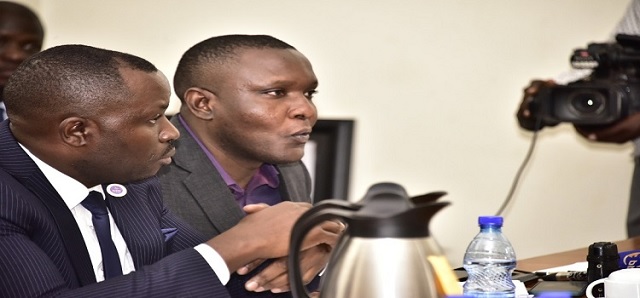
Kampala, Uganda | THE INDEPENDENT | The Human Rights Network for Journalists (HRNJ) and the Uganda Parliamentary Press Association (UPPA) want Members of Parliament to throw out the Computer Misuse Amendment Bill, 2022.
The journalist’s associations opine that the proposals in the bill infringe on freedom of speech, the press and hinder aspects of investigative journalism and holding leaders accountable.
While appearing before the ICT and National Guidance Committee on Thursday, 25 August 2022, the journalists said the bill is a duplication of already existing legislation.
Moses Mulondo, the UPPA President said that whereas they agree with the proposal to protect children from the advent of new media and the computer, this is already catered for in the Data Protection and Privacy Act and the mover of the bill simply seeks to curtail freedom of expression.
“The privacy of children is already catered for in Section 8 of the Data Protection and Privacy Act 2019 which candidly prohibits the publication of a child’s data/information without authorization from the parents or guardians,” he said.
On the proposal that seeks to curb the publication of malicious and false information, Mulondo said it is already catered for in the Uganda Communications Commission (UCC) Act in section 60 which provides for the creation of a Uganda Communications Tribunal to handle cases of professional misconduct and that nine years later, the tribunal is yet to be established.
He added that Kampala Central MP, Muhammad Nsereko should push for the establishment of a Uganda Communications Tribunal which is already provided for in the UCC Act and is supposed to hear and determine all matters relating to communication services arising from decisions made by the Uganda Communications Commission (UCC).
On the proposal stopping the interception of a person’s data, information, voice or video records without their consent, Mulondo said the proposal contravenes constitutional provisions and laws that guarantee freedom of expression and press like Articles 29 and 41 of the Constitution which provide that every citizen has a right of access to information in the possession of the state.
“If the amendment to section 12 of the Act is passed by Parliament, it would kill journalism in Uganda which largely thrives on investigations that involve obtaining information about individuals and organizations without their permission,” he said.
The Executive Director of HRNJ-U, Robert Ssempala, said that the right to privacy, the prohibition of unlawful access to data and the spreading of false information are already catered for in the existing laws.
Ssempala also said the proposal is targeting citizen journalists who have in many cases championed the fight against corruption by exposing corrupt leaders on social media leading to successful prosecutions.
“We have citizens capture on their private gadgets, armed officers committing crimes against civilians, domestic violence incidents being recorded, abuse of traffic rules all being recorded on private phones and later leading to successful prosecutions,” he said.
He added the intention of the Bill to make it an offence to record an audio or video of another person without their consent goes against the constitutional right to freedom of the press and that it would also kill the notion of investigative journalism in the country.
He said people who feel that their information has been wrongly shared or misrepresented have an option of instituting civil action, under the law against the alleged perpetrators.
The committee chairperson, Moses Magogo said they will incorporate all the submissions from different entities while compiling their report before tabling it before the whole house.
Mpindi Bumali, the Persons with Disability Representative said that social media needs to be regulated as some people are getting losses, others are being affected emotionally while other people’s images are being soiled.
Nsereko who also appeared before the committee defended the proposed amendment saying it will regulate social media and other media platforms especially when it comes to propagating fake news.
He said the law will make people who want to take up leadership positions responsible and discourage them from sending and publishing malicious, fake, and derogatory messages.
“We are not talking about responsible journalism; responsible journalists know their professional ethics. People know how to sue media houses or a journalist. There are laws protecting journalists and where and how they get their information,” Nsereko said.
*****
SOURCE: UGANDA PARLIAMENT MEDIA
 The Independent Uganda: You get the Truth we Pay the Price
The Independent Uganda: You get the Truth we Pay the Price


